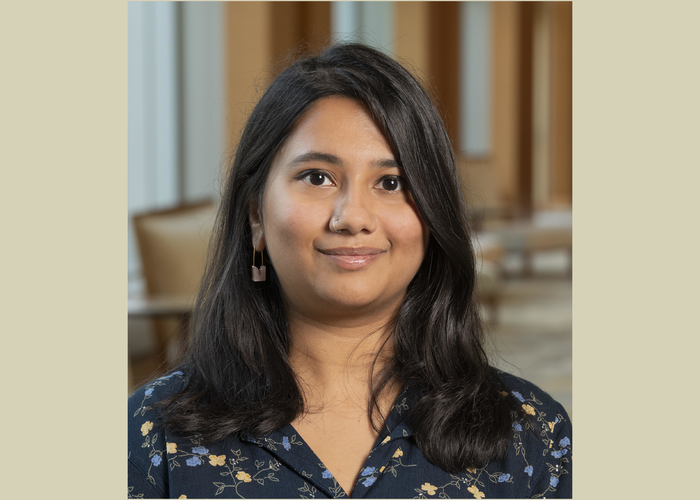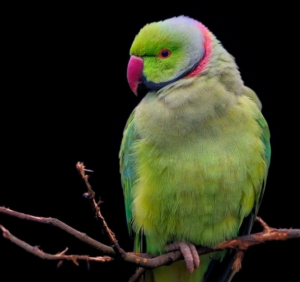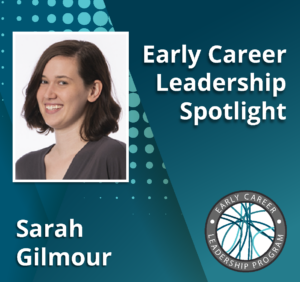We’re taking time to get to know the members of the GSA’s Early Career Scientist Committees. Join us to learn more about our 2021 early career scientist advocates.

Ananya Nidamangala Srinivasa
Multimedia Subcommittee
University of Kansas Medical Center
Research interest
Meiosis is a specialized form of cell division that some diploid organisms use to make haploid gametes. In a heterozygous diploid, post meiosis, each allele is assumed to be randomly passed on to the next generation. This Mendelian transmission is one of the fundamental laws of genetics. Meiotic drivers are selfish genetic elements that break this law by actively increasing their own transmission into the next generation. They often cause substantial fertility costs and can subvert natural selection to facilitate the maintenance of disease-causing variants in a population.
The wtf driver genes in the fission yeast Schizosaccharomyces pombe belong to this class of selfish genes. The wtf driver genes each encode a poison protein that targets all the developing gametes (spores) and a spore-specific antidote protein that rescues spores that carry the wtf gene. My PhD research currently involves understanding the mechanism of Wtf-poison toxicity in cells. I am trying to determine what features of the poison protein can determine toxicity using an approach that involves cell and molecular biology, microscopy, and genetics. Through mutagenic screens, I aim to identify amino acid residues responsible for the toxicity of the Wtf-poison. Additionally, I am comparing different Wtf proteins (poisons and antidotes) to identify common features that would inform the nature of these proteins. Conflict is essential in bringing about change, and intragenomic conflict was something I was introduced to through my PhD research. While I was familiar with selfish cheaters within a population, studying selfish genes within an organism’s genome made me appreciate how powerful natural selection can be!
As a PhD-trained scientist, you have many career options. What career paths interest you the most?
I’ve always enjoyed asking questions, and science provides me with tools to try and answer (some of) them. Any question I’ve pursued based on curiosity has never disappointed me! Mundane or outrageous, questions have always led me to wonderful answers. Biology is a field with an abundance of unanswered questions, and I want to try and answer some of them through scientific research.
Science is better when diverse people work together, and these reasons drive me to work with, learn from and teach people who are excited about science. I want to pursue a career path that gives me the freedom to be creative and ask stimulating questions. This is why I will primarily be pursuing a career at a research institute. While what I want to work on remains an open question, I hope to eventually lead a group that tries to answer basic biological questions through elegant research.
In addition to your research, how else do you want to advance the scientific enterprise?
Scientific communication is key to the success of the field. Most science is supported by federal grants, which often rely on policymakers’ appreciation for the value of scientific research. Making science more accessible is also important for encouraging students to pursue science. In conversations with my non-scientist friends and family, it was striking how science is perceived as being too complex and inaccessible. The complicated articles and the sophisticated jargon often throw the audience for a loop. Communicating science in a clear and concise manner is essential for the audience to grasp the vital concepts. Additionally, accessibility will likely increase the trust people have in science.
While I pursue my PhD, I aim to develop my skills to convey scientific findings and concepts through simple graphics, write-ups, and animation. The skills required to make comprehensive resources are challenging, yet exciting. I aim to work on communicating science in a clear, concise, and effective manner. Making science accessible (and fun) is important as a form of outreach too! We need to encourage everyone interested in science to be more involved in the field.
As a leader within the Genetics Society of America, what do you hope to accomplish?
As a member of the Multimedia subcommittee, I will work with the other members to write, produce, interview, edit, publish, and promote a podcast. Getting genetics research out in the podcast space will definitely increase scientific engagement and outreach, in a way that is consumable and accessible. I am excited to work with scientists and get the story behind their research to the audience in this format.
One of my goals is to develop my communication skills, and I believe my experience here will train me to improve these skills. I am very eager to learn and work with a group of remarkable scientists through the Early Career Leadership Program. Having a peer network is a valuable resource, and the ECLP provides a platform for it. Interacting with the other subcommittees gives me access to many resources on career development, outreach, and advocacy. I hope to become a better leader on the other side of the ECLP!
Previous leadership experiences:
- Committee Member, Student Research Forum, University of Kansas Medical Center
- Physiology Society Member, University of Kansas Medical Center
- Associate Editor-in-chief, Bioscience magazine, SASTRA University, India
- Associate Head, Arts team, SASTRA University, India
Connect with Ananya Nidamangala Srinivasa on LinkedIn, Twitter, and her personal website.













